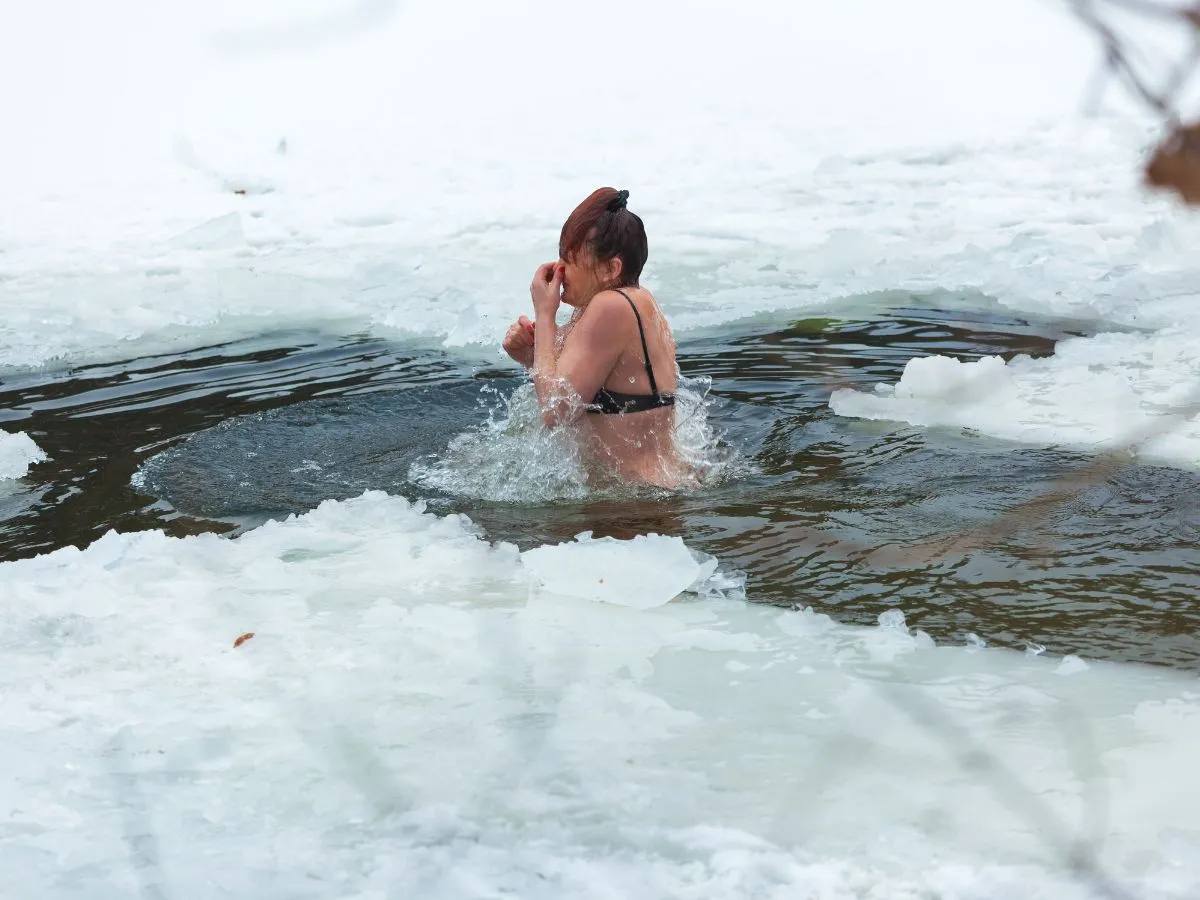The Chilling Benefits of Cold Plunging: A Dive into Physical and Mental Well-being
In a world that often feels overheated, both physically and mentally, a practice as simple as cold plunging offers a refreshing reprieve. Cold plunging, also known as cold water immersion, involves submerging oneself in cold water for a short duration. While the thought of immersing yourself in icy waters may send shivers down your spine, the benefits it offers to both body and mind are undeniably compelling. In this blog post, we'll explore the myriad benefits of cold plunging and why incorporating this practice into your routine might just be the invigorating change you need.

1. Improved Circulation:
Cold water immersion stimulates vasoconstriction, where blood vessels narrow, followed by vasodilation, where they widen upon exiting the cold water. This process enhances circulation, aiding nutrient delivery and waste removal throughout the body. A study published in the European Journal of Applied Physiology found that cold water immersion significantly increased blood flow, promoting cardiovascular health and reducing the risk of hypertension (White & Schneider, 2013).
2. Enhanced Recovery and Reduced Inflammation:
Athletes often turn to cold water immersion to expedite recovery post-exercise. The cold temperature helps reduce inflammation and muscle soreness by constricting blood vessels, which decreases the production of pro-inflammatory molecules. Research published in the International Journal of Sports Medicine demonstrates that cold water immersion effectively reduces markers of muscle damage and inflammation, facilitating quicker recovery between training sessions (Mawhinney et al., 2017).
3. Mental Resilience and Stress Reduction:
Cold plunging acts as a form of stress inoculation, training the mind to remain calm and composed in the face of discomfort. The shock of cold water triggers the release of endorphins and adrenaline, neurotransmitters associated with improved mood and stress resilience. A study conducted at Virginia Commonwealth University suggests that cold water exposure may help alleviate symptoms of depression and anxiety by modulating the brain's response to stress (Shevchuk, 2008).
4. Boosted Immunity:
Regular cold water immersion has been linked to enhanced immune function. Exposure to cold temperatures activates the body's immune system, increasing the production of white blood cells and boosting the activity of immune cells. Research published in PLOS ONE indicates that individuals who engaged in cold water swimming experienced fewer respiratory infections and exhibited stronger immune responses compared to non-cold water swimmers (Tipton et al., 2017).
5. Improved Mental Clarity and Focus:
Cold plunging is often hailed for its ability to sharpen mental acuity and improve cognitive function. The rush of cold water triggers a physiological response known as the mammalian diving reflex, which redirects blood flow to vital organs, including the brain. This influx of oxygen-rich blood enhances cognitive performance, leading to heightened alertness and mental clarity. A study published in Frontiers in Physiology suggests that cold water immersion may enhance cognitive function by improving cerebral blood flow and oxygenation (Okamoto et al., 2019).
6. Weight Management and Metabolic Benefits:
Cold exposure activates brown adipose tissue (BAT), a type of fat that generates heat to maintain body temperature. By stimulating BAT activity, cold plunging can increase energy expenditure and contribute to weight loss. Additionally, cold water immersion has been shown to improve insulin sensitivity and glucose metabolism, potentially reducing the risk of metabolic disorders such as diabetes. Research published in Cell Metabolism indicates that regular cold exposure may enhance insulin sensitivity and promote metabolic health (Lee et al., 2014).
7. Promotion of Sleep and Recovery:
The thermoregulatory effects of cold immersion can promote relaxation and help regulate sleep patterns. Taking a cold plunge before bedtime can lower core body temperature, which is conducive to falling asleep faster and experiencing deeper, more restorative sleep. Additionally, the stress-relieving benefits of cold plunging can help unwind both body and mind, facilitating optimal recovery during sleep.
Incorporating cold plunging into your routine can yield a plethora of physical and mental benefits, ranging from improved circulation and reduced inflammation to enhanced immunity and mental resilience. While the idea of subjecting oneself to icy waters may seem daunting, the scientific evidence supporting the efficacy of cold plunging is compelling. Whether you're an athlete looking to expedite recovery or an individual seeking to bolster your overall well-being, taking the plunge into cold water may just be the invigorating ritual your body and mind need.
Embrace the chill, and unlock the transformative power of cold plunging for a healthier, more resilient you.
To embark on your path to wellness with Dr. Jen Hardie, ND, please click here. We look forward to assisting you in your health journey.
In Health,
Dr. Jen Hardie
Naturopathic Doctor
[Disclaimer: The information provided in this blog post is for educational purposes only and should not be construed as medical advice. Consult with a qualified healthcare professional before making any changes to your health regimen.]
